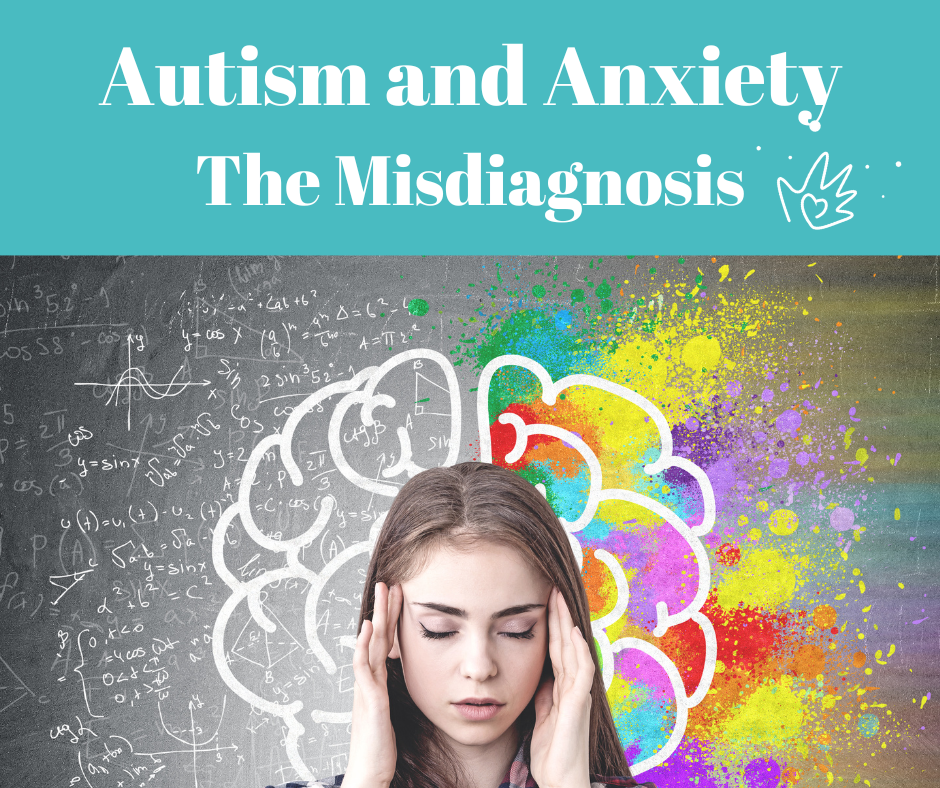Autism and anxiety, and ADHD and anxiety are so deeply intertwined. Ever since my diagnosis, it’s been something I have researched and looked into in great detail.
You see, I was diagnosed with General Anxiety Disorder in my teens. I would suffer horrendous panic attacks, convinced I was going to die. To the point the ambulances were called for me, on more than one occasion. I recall little from my childhood, other than an overwhelming feeling of anxiety. Persistent anxiety and frequent panic attacks have been a part of my entire adult life.
From the age of 15, I started to drink alcohol to socialise. And this pattern continued right up until I was diagnosed in my mid forties, although by that point we’d hit a pandemic and I’d had the gift of not having to socialise. I used to have a couple of drinks before I even left my house. To numb. To quiet the noise and to get me out of my own head. Interestingly, I don’t touch alcohol on my own, I don’t actually like how it makes me feel.
Throughout this blog, please bear in mind that I am sharing my own unique experiences, as an autistic and ADHD woman. We will each have very different experiences, and your anxiety triggers may be different. Some of you may be autistic, some ADHD, and some of you, like me, may be both. Lets just have a little look at why autism and ADHD can cause anxiety.
Autism and Anxiety: Anxiety may arise from hypersensitivities, difficulties with social interactions, or challenges in dealing with changes in routine. The social expectations and sensory experiences that may be neutral or even pleasant for neurotypical individuals might provoke stress and anxiety for someone who is autistic.
ADHD and Anxiety: If you are ADHD, you may experience anxiety due to persistent difficulties with attention, sensory overwhelm and processing, hyperactivity, and impulsivity. The consistent struggle to manage tasks, remember details, and maintain self-control can create a stress-inducing environment. The inability to meet certain expectations may generate worry, fear of failure, or overall anxiety.
And let’s not forget our good friend Rejection Sensitive Dysphoria – who can amplify these feelings even more!

Autism and Anxiety : The dangers of misdiagnosis
My autism and anxiety (plus my ADHD) caused me so many challenges. Being handed a General Anxiety Disorder diagnosis in my teens and have multiple medical professionals confirm the diagnosis, plus the added suggestion of depression, and I was set for a life of constant, often crippling, anxiety.
I have been offered antidepressants, anxiety medication and been to therapy more times than I can count. I used to talk constantly about not fitting in, not belonging, feeling lonely and wanting to move away and start again, all in the hope I’d find a sense of calm and a place where I belonged. At no point did any of these professionals consider I might be autistic or ADHD.
I don’t talk about this much, in fact it has only been in the last few months I’ve opened up about it, but my anxiety had led me to two moments in my life, that for a moment, I considered ending it all. Now, with hindsight and understanding, I know these were both autistic and ADHD burnouts. The signs are clear and plain to me now, but at the time, I couldn’t cope with the life I was forcing myself to live. Had I have known I was autistic ADHD, I would not have been in either of those situations. I’d have made different choices, better choices for me.
My autism and ADHD diagnosis helped me to understand my anxiety, and why it had ruled so much of my life. I’ll be honest and say I feel some anger and sadness that I was led to believe I had mental health challenges my whole life. Yet, my autism and ADHD diagnosis have helped me have a totally difference perspective. My autism and anxiety are so intrinsically linked, and I realised that the reason I was anxious all the time, was because I was trying to force myself to fit into a world that wasn’t designed for me. I forced myself to do all the ‘normal’ things, despite the discomfort and anxiety they bought me.
Being autistic and ADHD, I now understand how to manage my life, so that it works for and with me, and not against me. And it’s been life changing!
What is resulting in misdiagnosis for women?

Autism and anxiety and ADHD and anxiety are frequently misdiagnosed in women. Often resulting in both autism and ADHD being overlooked and dismissed entirely, or leading to a diagnosis in much later life.
And worryingly, it’s not just anxiety that autism and ADHD are mistaken for, it can be depression, bipolar disorder, or certain personality disorders. And, not only is the misdiagnosis a deep concern, the fact that the WRONG medications, that are not needed, are prescribed and consumed by women who do not actually need them.
There’s a growing body of evidence and research that looks into the misdiagnosis of autism and anxiety, plus other mental health related conditions. Here’s a few reasons why autism and anxiety commonly end in women being misdiagnosed:
Females often display symptoms differently than males. For example, where boys with ADHD may be hyperactive, girls might be inattentive and easily distracted. Similarly, girls on the autism spectrum may not exhibit classic signs, like repetitive behaviours, and might be better at masking their difficulties.
Societal and Gender Biases: Societal norms and expectations can play a significant role in misdiagnoses. Girls and women are often expected to be more sociable and empathetic, and if they manage to mask their symptoms to align with these expectations, their underlying conditions may go unnoticed.
Masking/Camouflaging: Females might be more adept at “masking” their symptoms to fit in with their peers. They might develop coping strategies that conceal their challenges, making it harder for clinicians to identify their underlying condition.
Diagnostic Criteria: Traditionally, the diagnostic criteria for disorders like ADHD and autism have been based on studies primarily involving white males. I talk about the outdated stereotypes a lot (you might have noticed!) so, diagnosis may inadvertently be gender-biased, making it less applicable to females.
Misinterpretation of Symptoms: In females, the symptoms of ADHD or autism may be misinterpreted as emotional or behavioural issues. For example, a girl who is perceived as shy and withdrawn might actually be experiencing social difficulties related to ASD.
Co-occurring Conditions: Girls and women might genuinely have co-occurring conditions, such as anxiety or depression, which might dominate the clinical picture, overshadowing signs of ADHD or autism.
It’s very complex and there’s no definite distinctions, but one thing is for certain, and that’s the worrying number of women that I speak with, who were misdiagnosed, and often medicated for the misdiagnosis.
The impact of a misdiagnosis

I know from personal experience the personal impact of having an autism and anxiety misdiagnosis, layered in with my ADHD, which was also not diagnosed until my mid-40s. And yet, I displayed so many signs of both autism and ADHD from an early age, but being a child of the 70’s, they went unnoticed.
Here are some of the personal consequences of autism and anxiety, plus ADHD misdiagnosis. I personally experienced all of these, but your experiences may be different from mine.
Burnout: Constantly compensating for daily challenges and striving to maintain a facade of “having it all together” can lead to exhaustion, overwhelm, overstimulation, and often, burnout.
Imposter Syndrome: Despite being able to achieve at a high level, you may continually feel like a fraud, fearing that you will be exposed for struggling with tasks that seem easy for others.
Internal Pressure/Stiving for Perfection: A constant internal pressure to maintain high standards in all aspects of life, leading to chronic stress and anxiety, and a fear of not being good enough.
Relationship Strain: You might experience strain in personal relationships, as the energy and resources required to maintain professional success may limit your emotional availability and social engagement. Your relationships may suffer due to your energy being consumed and drained in your professional life.
Mental Health Impact: The prolonged stress and continuous effort to fit in, to keep going, and to manage daily struggles can take a toll on your mental health, leading to issues like anxiety, depression, and other mood disorders. This can differ from neurotypical anxiety and depression, as it is triggered by the overwhelm and struggles of trying to fit into a world that is not designed for you.
Unfulfilled Potential: Despite your achievements, you might constantly feel like you are not reaching your full potential.
Guilt and Shame: You might harbour guilt or shame about your challenges, believing you should be able to manage given your external achievements and successes. Or your guilt and shame may come from compromising your own beliefs and values or doing things you weren’t comfortable with, in a bid to be accepted by others.
Physical Health Issues: Persistent stress and anxiety, if unmanaged, can also lead to physical health issues, such as sleep disturbances, headaches, and other stress-related ailments. It can also manifest in physical injuries, as stress builds in your body.
As a female in a high-achieving role, acknowledgment and understanding of your neurodevelopmental challenges is crucial, to manage your own well-being and anxiety levels. Personally, I believe that anxiety and depression in autistic and ADHD women are often a by-product of the pressure and effort that goes into trying to fit in and achieve success, against so many barriers and challenges. We have to fight harder to cope and manage multiple factors in society, whilst working incredibly hard to be accepted by our peers and fit into society.
Autism and Anxiety, plus ADHD: My misdiagnosis

My General Anxiety Disorder came at around the age of 18, as I recall. I don’t have much of a childhood memory before the age of 11, my memories only really go back to the age of 11, which is when I was hit by a car and sustained pretty horrendous injuries.
Whilst I was diagnosed with GAD at around the age of 18, after being hospitalised following a huge panic attack, that wasn’t where my anxiety began. I’ve always been anxious. I’ve never felt like I fit into friendship groups, and I never really knew how to act. I’d copy the ‘cool’ kids and look for cues as to what was acceptable and what wasn’t. I always felt like I was a few steps off the beat, never quite able to keep up, which left me feeling awkward and anxious all the time.
Living with a misdiagnosis led me to spend my life in a permanent state of anxiety, experiencing crippling panic attacks and resulting in multiple episodes of burnout and overwhelm.
I was offered medication for anxiety and depression numerous times, but I didn’t take it. Deep down I always knew it wasn’t GAD or depression, it felt like there was a cause for how I was feeling, a tangible reason. And there was. I experienced acute social anxiety, something that I still struggle with today. Being autistic and ADHD, I am frequently overwhelmed by the environments I am in, noise, smells, and people. I find communicating difficult and small talk painful, people unpredictable, and a constant discomfort that comes from not knowing what to expect.
My autism and anxiety, plus my ADHD affected and affects every area of my life. Nowadays, I understand my triggers and needs much better. I do my best not to put myself in situations that trigger my anxiety and when I have to, I have a plan on how to manage it and allow myself some space to recover afterward.
I am infinitely better at spotting the warning signs of overwhelm and burnout, now I know about my autism and anxiety, plus ADHD needs. I can often now see the warning signs, and manage the anxiety before it reaches full blow panic attack. Even if it does go that far, I have some great strategies to help me get through it.
But my medical records still show that I have a diagnosis of General Anxiety Disorder and in truth, my ADHD and autism assessment confirm that I have acute anxiety. It feels almost impossible to articulate and have an understanding of the fact that this is NOT General Anxiety Disorder, it’s the consequence of trying to fit into a world that is not designed for me. A world that does not want to understand or accept me as I am, and is more intent on squashing me into a carefully labeled box of what autism and ADHD ‘look’ like. My anxiety is not general, I have known triggers, that I am well aware of now.
I do not fit the carefully curated societal picture of what autism and ADHD are – and this leads to further anxiety and struggles on my part. Society has to change, these checkboxes and tick-lists of traits have to go. There’s a dire need to start believing in the individual’s experiences, and accepting their experiences, exactly as they are.
The need for understanding and acceptance

Understanding my autism and anxiety, and ADHD triggers and challenges has helped me immeasurably. I can now look back at my whole life and see why I lived feeling constantly anxious, on edge, and as if something could go wrong at any minute.
I always knew that I didn’t have a General Anxiety Disorder or depression, I knew it to my core. I knew there were catalysts for these feelings, and triggers. It wasn’t a general state, so much of it was linked to interacting with others and feeling like I didn’t fit in or belong anywhere.
I spent a FORTUNE on therapy. Where I poured out my heart about how I felt like I wasn’t good enough, I didn’t belong. I shared how I felt that nobody saw me, or listened to me and that I wasn’t understood. In the seven years plus that I had therapy, not one person suggested I was autistic or ADHD. Why? Because I flew under the radar, I had a degree, a good job, and an outwardly successful life – based on societal standards. The way I was feeling was just ignored.
I had relationships with mentally and emotionally abusive men, who gaslit me and tried to control me at every turn. So I was always in a state of high alert, a state of anxiety. Two years with a narcissist nearly broke me, I was the perfect ‘victim’ for his controlling and abusive ways.
Understanding my autism and anxiety, and ADHD has helped me to manage my anxiety much better. I now have deep compassion and understanding for myself, and I know how to support myself. I am not alone in this. So many women receive a misdiagnosis of GAD and other mental health issues, whilst autism and ADHD are overlooked. Many spend their lives on medications they don’t need, and that often doesn’t make a difference.
This is completely unacceptable to me. I believe we need to speak up and start sharing our stories, so that females get the RIGHT diagnosis and support, to enable them to lead happy and thriving lives. Have you had a similar experience? I’d love to hear from you if you have, if you feel able to share.
I hope that you have found my blog on autism and anxiety insightful and interesting. As I mentioned at the start, I write from a place of being both autistic and ADHD, and these are just my own experiences. We all have unique stories and experiences. No two paths are linear.
Until next time, stay brilliant, stay bold, and go out and shine your incredible light in the world.
If you haven’t joined my private Facebook Group for autistic and ADHD entrepreneurs and leaders then I’d love you to join us, you can click on the button below.
And if you haven’t taken my Success & Happiness Quiz yet, then click on the link. You’ll get your results immediately, with bespoke advice and tips, which are easily actionable. It takes less than 4 minutes and it’s fun!
Until next time, Nikki x
